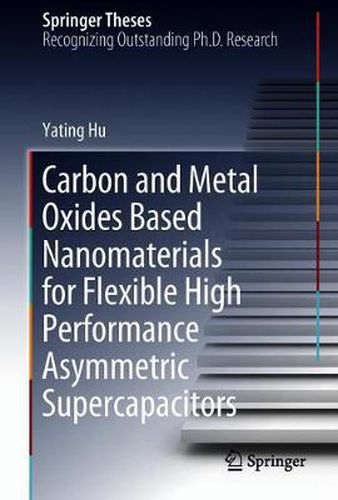Readings Newsletter
Become a Readings Member to make your shopping experience even easier.
Sign in or sign up for free!
You’re not far away from qualifying for FREE standard shipping within Australia
You’ve qualified for FREE standard shipping within Australia
The cart is loading…






This title is printed to order. This book may have been self-published. If so, we cannot guarantee the quality of the content. In the main most books will have gone through the editing process however some may not. We therefore suggest that you be aware of this before ordering this book. If in doubt check either the author or publisher’s details as we are unable to accept any returns unless they are faulty. Please contact us if you have any questions.
This thesis examines electrode materials such as mesoporous carbons, manganese oxides, iron oxides and their nanohybrids with graphene. It also explores several of the key scientific issues that act as the governing principles for future development of supercapacitors, which are a promising class of high-efficiency energy storage devices for tackling a key aspect of the energy crisis. However, critical technical issues, such as the low energy density and reliability, need to be addressed before they can be extended to a wide range of applications with much improved performance. Currently available material candidates for the electrodes all have their disadvantages, such as a low specific capacitance or poor conductivity for transition metal oxide/hydroxide-based materials.
This thesis addresses these important issues, and develops a high-performance, flexible asymmetric supercapacitor with manganese oxides/reduced graphene oxide as the positive electrode and iron oxide/reduced graphene oxide as the anode, which delivers a high energy density of 0.056 Wh cm-3.
$9.00 standard shipping within Australia
FREE standard shipping within Australia for orders over $100.00
Express & International shipping calculated at checkout
This title is printed to order. This book may have been self-published. If so, we cannot guarantee the quality of the content. In the main most books will have gone through the editing process however some may not. We therefore suggest that you be aware of this before ordering this book. If in doubt check either the author or publisher’s details as we are unable to accept any returns unless they are faulty. Please contact us if you have any questions.
This thesis examines electrode materials such as mesoporous carbons, manganese oxides, iron oxides and their nanohybrids with graphene. It also explores several of the key scientific issues that act as the governing principles for future development of supercapacitors, which are a promising class of high-efficiency energy storage devices for tackling a key aspect of the energy crisis. However, critical technical issues, such as the low energy density and reliability, need to be addressed before they can be extended to a wide range of applications with much improved performance. Currently available material candidates for the electrodes all have their disadvantages, such as a low specific capacitance or poor conductivity for transition metal oxide/hydroxide-based materials.
This thesis addresses these important issues, and develops a high-performance, flexible asymmetric supercapacitor with manganese oxides/reduced graphene oxide as the positive electrode and iron oxide/reduced graphene oxide as the anode, which delivers a high energy density of 0.056 Wh cm-3.